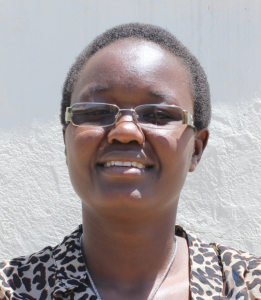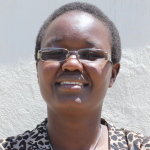Gamudusi Primary School has been functioning for five years, and collecting sufficient water to meet the school's daily water needs has always been a burden on the children who attend there. The 273 current students find the daily chore exhausting, but there is no other choice.
Field officer Olivia Bomji shared, "The pupils carry water from home every morning as they come to school and in the afternoon when they go home for lunch. This has affected them a lot because they spend most of their time carrying water."
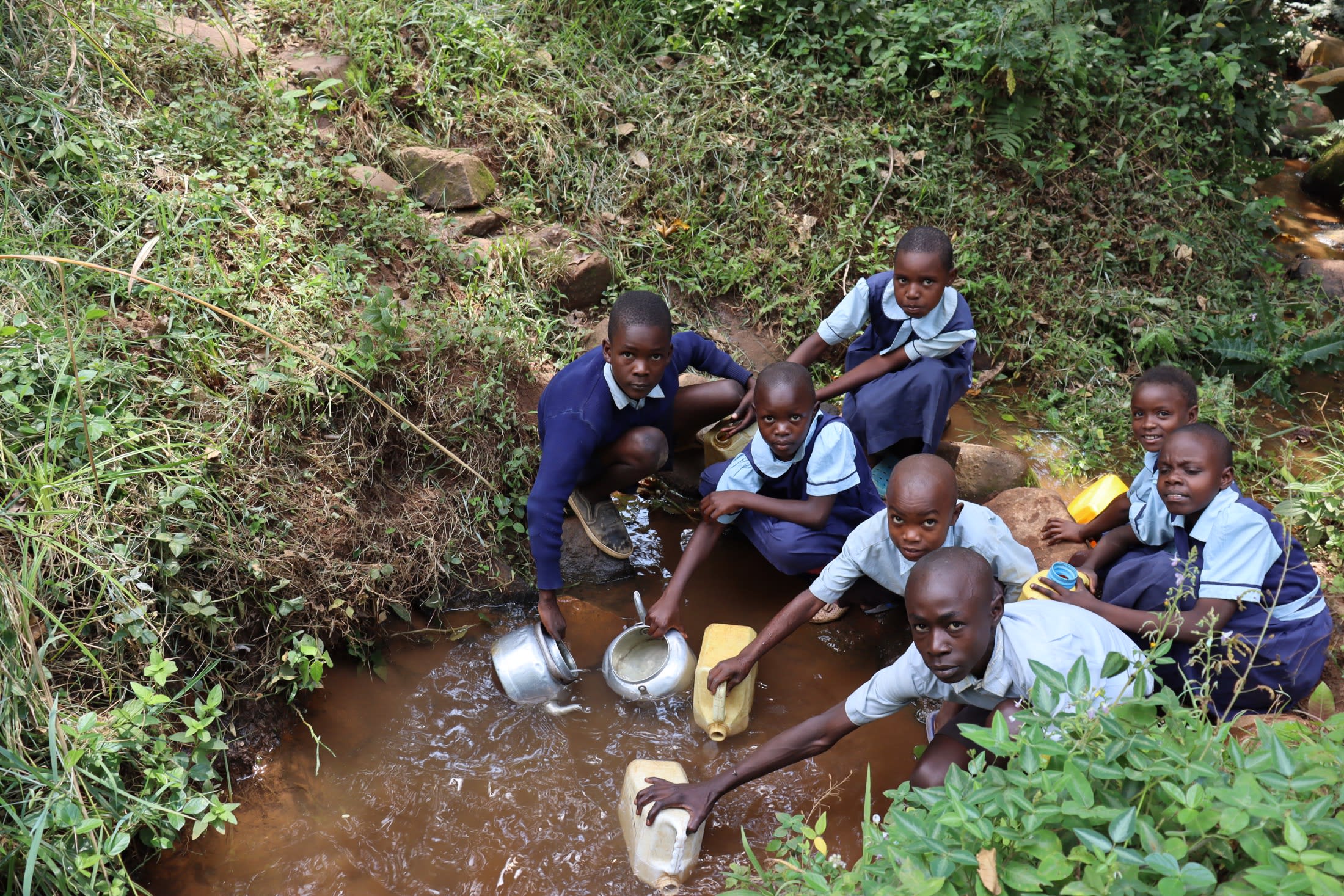
She continued: "The pupils complain of stomachaches almost every day, and this has affected their studies a lot. They miss school because they are sick, and their family members are sick too."
"Lack of water in school has affected me as a teacher because sometimes [I] am affected as the pupils too. I get sick too and tired of monitoring who has not carried water to school every morning and evening," said 25-year-old teacher Mrs. Conthalus Luhunga (seen below). "Not having enough water has made sanitation and hygiene low."
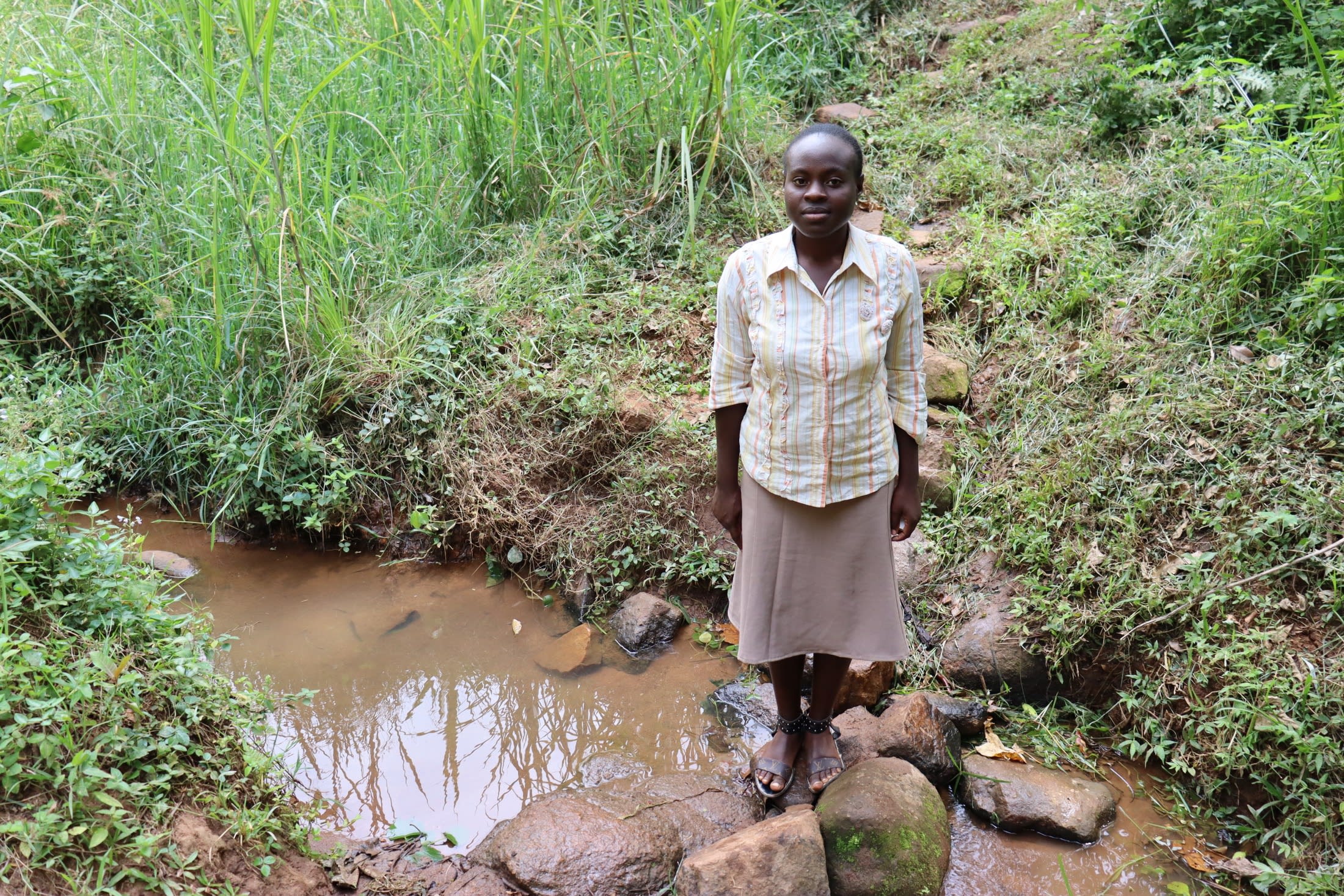
Not only are students and teachers not feeling well, but their inability to maintain the school's hygiene is making their learning environment uncomfortable. Sadly, students are suffering, and as a result, they do not enjoy learning.
"Lack of enough clean water to drink and use in school has made me hate learning. This is because most of the time my hands are dirty, the classrooms are dusty, and the latrines are also dirty, and to make matters worse, sometimes we have no water to drink because the water from home is dirty," said 14-year-old student Clonton K., fetching water in the photo below.
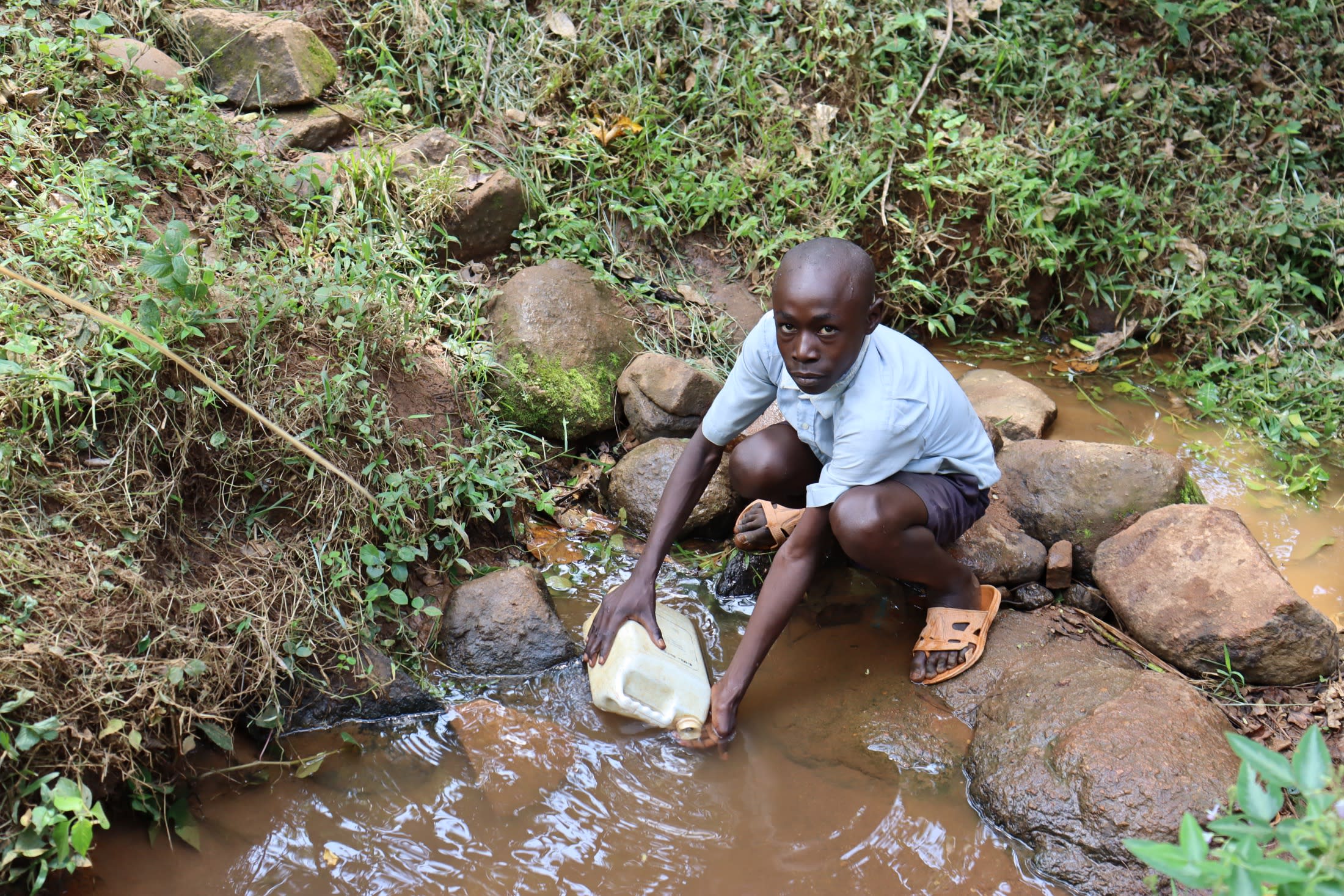
During the rainy season, it becomes riskier for students to collect water because the water floods the area and stirs up mud at the same time. Students must tread very carefully, or else they could drown.
It is time for these students to be relieved of collecting water for the school. And hopefully, by relieving them of the burden, they can enjoy school and love learning once again.
What We Can Do:
New Well
We conducted a hydrogeological survey at this school and the results indicated the water table beneath it is an ideal candidate for a borehole well. Due to a borehole well's unique ability to tap into a safe, year-round water column, it will be poised to serve all of the water needs for this school's large population, even through the dry months.
The school will help collect the needed construction materials such as sand, rocks, and water for mixing cement. They will also provide housing and meals for the work team, in addition to providing local laborers. We will complement their materials by providing an expert team of artisans and drilling professionals, tools, hardware, and the hand-pump. Once finished, water from the well will then be used by the school’s students and staff for drinking, handwashing, cooking, cleaning, and much more.
Handwashing Stations
The student health club will oversee the two new handwashing stations we will provide, and make sure they are kept clean and in working condition. The club leaders will fill the handwashing stations with water daily and make sure they are always supplied with a cleaning agent such as soap or ash.
VIP Latrines
We will construct two triple-door latrine blocks using local materials that the school will help gather. Three doors will serve the girls and three doors will serve the boys. All of these new latrines will have cement floors that are designed to be easy to use and to clean. And with a borehole right on school property, there should be enough water to keep them clean.
Training on Health, Hygiene, COVID-19, and More
We will hold a one-day intensive training session with students, teachers, and parents. This training will cover a wide range of topics including COVID-19 symptoms, transmission routes, and prevention; personal and environmental hygiene; and the operation and maintenance of the borehole, latrines, and handwashing stations. There will be a special emphasis on handwashing.
Our team of facilitators will use a variety of methods to train, including participatory hygiene and sanitation transformation, and asset-based community development. We will initiate a student health club, which will prepare students to lead other pupils into healthy habits at school and at home. We will also lead lectures, group discussions, and provide illustrative handouts to teach health topics and ways to promote good hygiene practices within the school including handwashing and water treatment. We will then conduct a series of follow-up trainings before transitioning to our regularly scheduled support visits throughout the year.
We and the school strongly believe that all of these components will work together to improve standards at this school, which will help lead to better student academic performance and will help unlock the opportunity for these students to live better, healthier lives.





 Borehole Well and Hand Pump
Borehole Well and Hand Pump
 Rehabilitation Project
Rehabilitation Project












